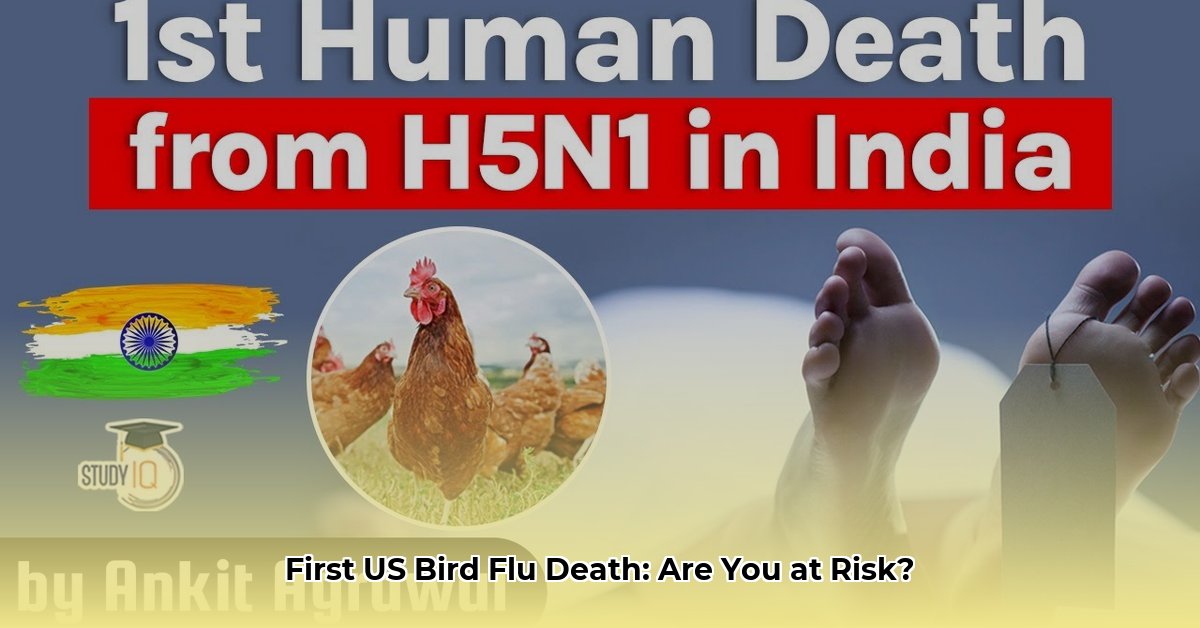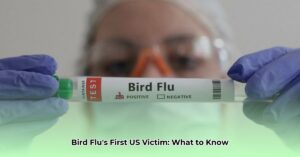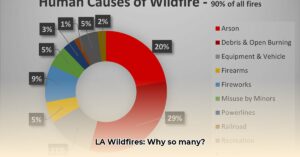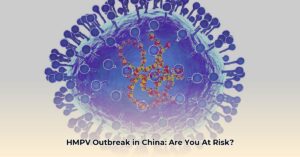The first U.S. death from the H5N1 strain of avian influenza, commonly known as bird flu, has been confirmed in Louisiana in early 2025. This marks a significant development in the ongoing monitoring of H5N1 in the country. While concerning, health officials emphasize that the risk to the general public remains low.
Understanding the Situation
The individual who died was over 65 and had underlying health conditions, making them more vulnerable to severe illness. They had reportedly been in contact with both backyard poultry and wild birds, the likely source of infection. This case underscores the importance of safe practices when handling birds, especially for those with underlying health conditions.
As of January 6, 2025, 66 human H5N1 infections have been confirmed in the U.S. since 2024, bringing the total since 2022 to 67. Globally, the World Health Organization (WHO) has tracked over 950 human cases since 2022. While these numbers highlight the presence of H5N1, they also demonstrate that human infections, especially in the U.S., remain relatively rare. Currently, there’s no evidence of sustained human-to-human transmission.
H5N1: What You Need to Know
H5N1 is a type of influenza virus that primarily affects birds. While it can sometimes spread to humans, this typically occurs through direct contact with infected birds, their droppings, or contaminated surfaces. It’s crucial to understand that casual contact with birds is unlikely to result in infection. The virus is not easily transmitted through the air like the seasonal flu.
Symptoms and Risks
H5N1 symptoms in humans can range from mild, resembling a typical flu, to severe, potentially life-threatening illness. Mild symptoms may include fever, body aches, cough, runny nose, and sometimes conjunctivitis (pink eye) or diarrhea. Severe symptoms can include high fever, persistent cough, severe muscle aches, difficulty breathing, pneumonia, and Acute Respiratory Distress Syndrome (ARDS). It is essential to seek immediate medical attention if you experience any of these symptoms, particularly if you suspect exposure to infected birds.
While anyone can contract H5N1, certain groups face a higher risk. People who work directly with poultry, such as farmers and poultry processors, are more likely to be exposed to the virus. Those involved in the transport and sale of live poultry are also at elevated risk.
Protecting Yourself and Your Community
Simple precautions can significantly reduce the risk of H5N1 infection:
- Avoid contact: Steer clear of sick or dead birds. If you must handle them, wear protective gear (gloves, mask, eye protection).
- Practice hygiene: Wash your hands thoroughly with soap and water after any potential contact with birds or their environments.
- Safe poultry handling: If you raise chickens, maintain a clean coop, handle birds with care, and keep them separated from wild birds as much as possible. Cook poultry thoroughly to an internal temperature of 165°F (74°C) to kill the virus.
Treatment and Ongoing Research
Antiviral medications, such as oseltamivir (Tamiflu) and zanamivir (Relenza), can be effective in treating H5N1, particularly when administered early in the course of the illness. Research into additional treatments and improved prevention strategies is ongoing. Scientists are actively studying the virus’s evolution, working to develop vaccines, and improving surveillance and monitoring systems.
Staying Informed
The situation with H5N1 is constantly evolving. For the most up-to-date information and guidance, consult reliable sources like the Centers for Disease Control and Prevention (CDC) and the World Health Organization (WHO). Staying informed is the best way to protect yourself and your community.
Frequently Asked Questions (FAQ)
Is it safe to eat chicken and other poultry?
Yes, as long as it’s cooked thoroughly to an internal temperature of 165°F (74°C). Proper cooking destroys the H5N1 virus. Commercially available poultry and eggs are considered safe to eat.
Is there a vaccine against H5N1 for people?
While there are vaccines being developed and tested, there isn’t one currently available for the general public.
What should I do if I think I might have H5N1?
Contact your doctor immediately. Inform them about any potential bird contact. Early diagnosis and treatment are crucial.
How is H5N1 treated?
Antiviral medications like oseltamivir (Tamiflu) and zanamivir (Relenza) can be effective, especially when started early.
Can my pets get bird flu?
Yes, some mammals, including cats and dogs, can be infected. Consult your veterinarian for advice on protecting your pets.







